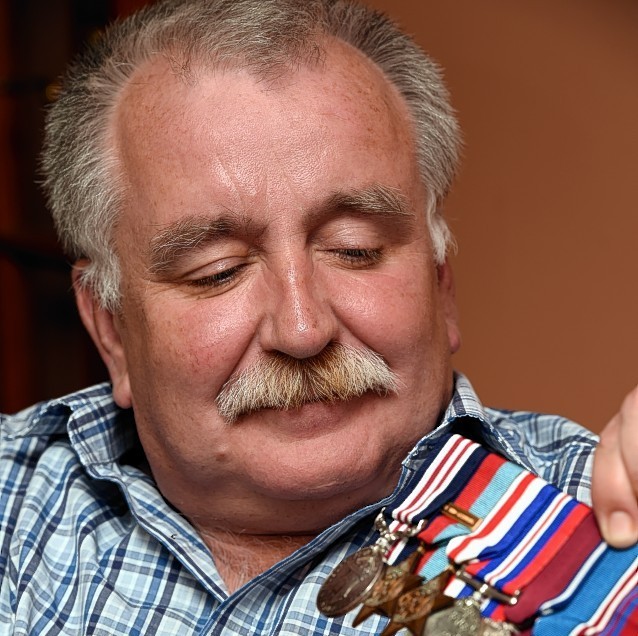The World War II heroism of a north-east man has finally been uncovered after his grandson opened an old suitcase and lifted the lid on his past.
Michael Taylor shared his Elgin home with his grandfather, James Moonie, for the last years of his life until he died in 2001, aged 86.
It was only in January — 14 years on — that Mr Taylor came across the case and discovered the extent of his grandfather’s role in the allies’ heroic but doomed stand at St Valery en Caux on June 12, in 1940.
Sergeant Major Moonie joined the territorial army in 1935 and was among thousands of soldiers from the 51st Highland Division who were overpowered by the Germans in the Normandy town, as most of the British forces were evacuated from Dunkirk.
As a signalman, he was required to stay to the end to maintain outside contact and destroy vital documents.
For his conduct, he became was one of the few TA soldiers to be honoured with the Military medal “for bravery in battle on land”.
After being captured, Sergeant Major Moonie endured the death march through Poland and saw out the rest of his war as one of about 500 prisoners in an abandoned brick factory in Rastow, Germany.
The suitcase contained his service medals, as well as a collection of photographs depicting life inside a German prisoner of war camp which had been sent back to his wife, Violet, at their home in Aberdeen’s Wallfield Crescent.
There are also piles of documents and letters relating to the war, including exchanges between Mr Moonie and his 51st Highland Division comrade Andrew Cheyne.
Mr Taylor, 55, said he was astonished to learn of his grandfather’s wartime exploits.
He said: “Some of the prisoners of war wouldn’t or couldn’t write home. Grandad made sure he got everyone’s names and he wrote to all the families to let them know they were alive and in the camp.
“He never talked about the war, apart from when my granny used to send me to fetch him from the British Legion.
“He was a brave man, who was very private, but very loving. We remember him every day.”
